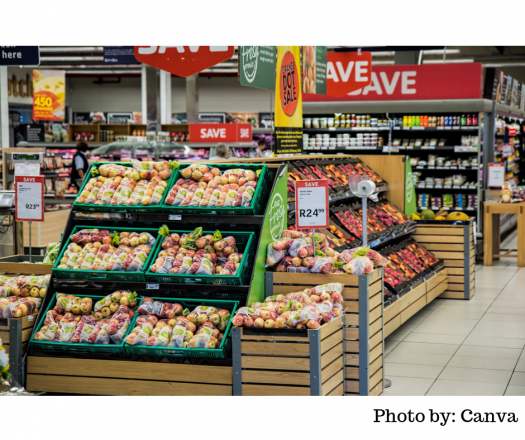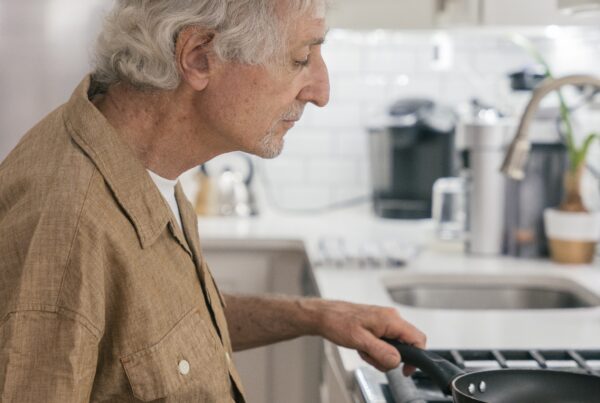By: Annabelle Shaffer, BS, Master’s candidate in the Division of Nutritional Sciences at the University of Illinois Urbana-Champaign
Registered Dietitian Nutritionists (RDN) fulfill a variety of roles including clinical practice, public health, and community nutrition. A new role has emerged more recently that utilizes skill sets found in each of these practice areas, the supermarket RDN. Supermarket RDNs are found at retailers across the country, including HyVee, ShopRite, and H.E.B. With the ever-changing grocery landscape, supermarket RDNs give traditional grocers a leg up on the competition.¹
The Role of a Supermarket RDN
While some retail RDNs offer Medical Nutrition Therapy (MNT), most focus on promoting wellness and healthy eating to employees and the community. To encourage healthy eating, RDNs perform grocery store tours, label products nudging consumers towards making healthy choices, provide taste tests, and conduct in-store cooking classes.²,³ In addition to the tours and labeling, HyVee RDNs conduct in-store weight management classes, called Begin, along with health screenings.⁴
Corporate Level RDNs
At the corporate level, dietitians are being tasked with non-traditional roles like marketing.² With social media growing, RDNs are frequently called on to create nutrition-related product campaigns on Instagram or other social media platforms. This can include recipe development and newsletter writing. These campaigns can increase traffic in stores and boost specific product sales.¹ Corporate level RDNs also develop educational programs for employees to increase consumer education at the point of sale and worksite wellness programs.¹
The Skill Set of a Retail Dietitian
Like all RDNs, retail RDNs are required to complete an accredited bachelor’s degree program, internship, and national certification exam. Additionally, they need to be very personable and have knowledge of business and the food sales industry. The Academy of Nutrition and Dietetics also recommends a foundation of clinical practice to prepare RDNs for all possible questions shoppers could pose.²
What Makes a Retail Dietitian Valuable?
While it is clear how a dietitian may be able to help the average shopper improve their health, it may be surprising to note that RDNs can also be a valuable asset to a grocery store’s bottom line. Grocery stores have minimal profit margins and a dietitian’s health services can bring shoppers into the store and help increase sales of targeted products.⁵ For example, at the grocery chain Hy-Vee, an RDN developed signage for the meat counter about the benefits of lean cuts of meat and sales of the preferred cuts significantly increased.² Aside from the benefit to customers, the potential for increased traffic and sales justify the hiring of RDNs at the supermarket and corporate levels.
References:
- The Value of Retail Dietitians – Today’s Dietitian Magazine. (2019). Retrieved 10 October 2019, from https://www.todaysdietitian.com/enewsletter/enews_0315_01.shtml
- The Supermarket RDN. (2019). Retrieved 10 October 2019, from https://www.eatrightpro.org/news-center/in-practice/dietetics-in-action/the-supermarket-rdn
- Retail RDs’ Impact on Public Health. (2019). Retrieved 10 October 2019, from https://www.todaysdietitian.com/newarchives/031115p40.shtml
- Hy-Vee. (2019). Retrieved 10 October 2019, from https://www.hy-vee.com/health/hy-vee-dietitians/default.aspx
- Foster, G., Karpyn, A., Wojtanowski, A., Davis, E., Weiss, S., & Brensinger, C. et al. (2014). Placement and promotion strategies to increase sales of healthier products in supermarkets in low-income, ethnically diverse neighborhoods: a randomized controlled trial. The American Journal Of Clinical Nutrition, 99(6), 1359-1368. doi: 10.3945/ajcn.113.075572
Photo by Canva.














